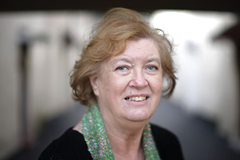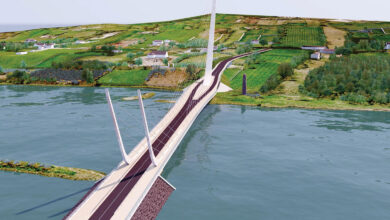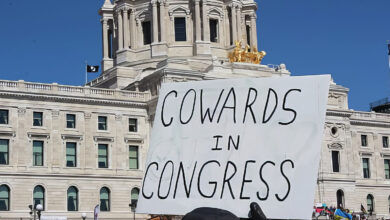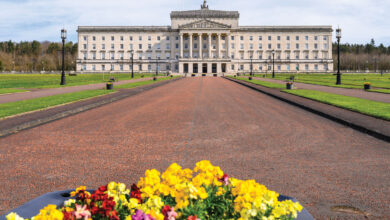Inez McCormack
 Trade unionist and feminist · 1946-2013
Trade unionist and feminist · 1946-2013
“I have worked out that you are loved in low places and loathed in high places,” a Conservative Secretary of State once told Inez McCormack. Taken as a compliment, it became one of the many stories she would recall over the years of an eventful life.
Her involvement in the anti-war and civil rights movements preceded her trade unionism. She met her husband Vincent in London in the summer of ’68 and both of them protested against the Vietnam War outside the US Embassy. She was at Burntollet when loyalists attacked the People’s Democracy march in January 1969.
McCormack was suspended from her job as a social worker after criticising the poor treatment of the poor in West Belfast and subsequently worked for the National Union of Public Employees. A concern for the marginalised, especially female and low paid workers, was a running strand throughout her career in NUPE and UNISON, and her term as the first female President of ICTU between 1999 and 2001.
“Who is not at the table?” was one of McCormack’s stock phrases.
During the miners’ strike, she organised the sending of food parcels from working class Belfast to the families of strikers. Although raised as a Protestant, McCormack supported the MacBride principles on positive discrimination for Catholic workers: an unpopular stand as manufacturing unions in the 1980s represented a mainly Protestant workforce. That campaign gave her contacts among trade unionists in New York, who helped to secure Bill Clinton’s visit to Northern Ireland in 1995.
Hillary Clinton wanted to carve out her own role and returned to Belfast a year later to address the Vital Voices women’s conference. McCormack introduced the First Lady on that occasion and a genuine friendship grew. In 2008, she campaigned for Clinton in the Democratic primaries and fame followed two years later when Meryl Streep portrayed her on Broadway. Newsweek later named McCormack as one of ‘150 Women Who Shake the World’.
As ICTU President, she founded the Participation and Practice of Rights project which encouraged North Belfast residents to work across the sectarian divide and stand up for their rights.
Inez is survived by Vincent, her daughter Anne and two grandchildren, Maisie and Jamie. She had advised Mary Robinson on her northern visits and the former Irish President paid a final tribute by writing her obituary in the Guardian. Memories of her life are also cherished by her close colleagues in the trade union movement and many other friends in high and low places alike.





